Abschnittsübersicht
-
This course is for adults and adult educators who want to improve their competencies in the areas of creativity and arts. Those interested in the course may be social educators, teaching staff, those working in social enterprises and social services, and people interested in digital social innovation. There are no prerequisites for this course; any adult or adult educator with a desire to learn something new and develop his/her skills can join.
While designed for adults and adult educators, the course may be useful to other categories, such as youth workers, trainers, and VET teachers.
This course aims to:
- define the basic terms related to creativity, brilliance, and innovation
- to help understand the creative process and be able to classify it and develop ideas to improve it
- explain the historical and intellectual context of creativity and İdentify the context of creativity and education
- explain 21st-century learning skills, such as STEM, and apply them in the classroom
- better understand the impact of digital technologies and how to master them
- identify the concept of creativity and the types, techniques and applications to provide theoretical and practical elements to develop creativity
- apply the pedagogical use of the different types of digital art and learn the importance of digitalization in the social environment
- develop a comprehensive model to measure creativity and in this way be able to identify and implement creative teaching approaches
This educational package contains 7 modules designed to provide the necessary knowledge and promote the development of skills and attitudes of social educators and teachers.
After completing all the steps, you can download your course completion certificate.
We wish you happy learning!
-
Upon completion of this Learning Unit, trainees will be able to:
- Define basic notions related to creativity, brilliance, innovation
- Comprehend components of creativity
- Explain creativity theories and models
- Understand the creativity process
- Comprehend the relationship between creativity and genius
- Define creative problem-solving
- Acquire the basic components and steps of creative problem-solving
- Recognize the benefits of creative problem-solving
- Distinguish the relationship between creativity and innovation
- Apply activities to encourage creativity
-
Upon completion of this Learning Unit, trainees will be able to:
- Comprehend the distinction between creativity types
- Define creativity types
- Classify types of creativity
- Explain the steps of the social creativity process
- Classify frameworks for social creativity
- Apply frameworks of creativity
- Analyse barriers to creativity
- Generate ideas for enhancing creativity
- Define historical and intellectual context for creativity
-
Upon completion of this Learning Unit, trainees will be able to:
- Recognize the types of creativity
- Acquire the teaching method of creative education
- Distinguish the stages of the teaching method of creative education
- İdentify the context of creativity and education
- Distinguish the domains of creativity
- Apply the effective teaching strategies
- Generating six principles of effective teaching
- Explaining three stands of influence for approaching creativity
- Classifying the step-by-step process for the creativity session
- Explain 21st-century learning skills
- Apply STEM during the lessons
-
Upon completion of this Learning Unit, trainees will know and understand:
- Intelligent algorithms
- Knowledge acquisition and representation
- Conscientiousness
- Computational creativity
- Machine learning
-
Upon completion of this Learning Unit, trainees will be able to:
- Identify the concept of creativity, as well as the types, techniques and applications, in order to provide theoretical and practical elements to develop creativity
- Recognize the characteristics of this concept
- Acquire techniques for the development of creative thinking skills
- Distinguish different types of digital art
- Apply the pedagogical use of the different types of digital art
- Learn about the importance of digitalization in social environments
-
On completion of this Learning Unit, trainees will be able to:
- Define creativity and key elements of creative teaching
- Classify the conceptual framework for creative teaching
- Comprehend on creative teaching instructional cycle
- Develop a comprehensive model for measuring creativity
- Define “What is Creativity in Education”?
- Recognize and Implementing Creative Teaching Approaches
- Explain Art Integration in Schools
- Differentiate types of art education
- Develop ways to integrate art into the classroom
- Organize arts integration checklist
- Explain digital art education and its importance
- Classify new digital art forms
-
On completion of this Learning Unit, trainees will be capable of (Bloom taxonomy):
- Comprehending the characteristics of a creative person;
- Applying activities to stimulate creative thinking;
- Defining thinking styles;
- Classifying types of thinking styles;
- Classifying thinking styles due to people’s behaviour;
- Analysing a problem due to critical thinking;
- Generating ideas for solving a problem;
- Conducting a problem-solving activity;
- Explaining what critical thinking is;
- Explain the steps of the SCAMPER method;
- Apply the SCAMPER method during the lessons;
- Developing modern pedagogy methods.
-
-
Course evaluation & feedback
The input from students is essential and always welcomed for improving our courses!
We invite you to provide your opinion about the course.
Thank you in advance!
-
-
You have reached the end of the course.
Congratulations for going through all the online course modules!
The link to download your free course certificate will be available upon completing all the tasks listed below.
-
Acknowledgment. This paper has received funding from the European Commission under the Grant Agreement number 2020-1-TR01-KA227-ADU-097776, ERASMUS+ Strategic Partnership project “New Dimensions of the Disruptive Impact on the Art and Creativity in Digital Social Innovation”.
Disclaimer. The European Commission's support for the production of this publication does not constitute an endorsement of the contents, which reflect the views only of the authors, and the Commission cannot be held responsible for any use which may be made of the information contained therein.
Copyright notice. CC BY. This license allows reusers to distribute, remix, adapt, and build upon the material in any medium or format, so long as attribution is given to the creator. The license allows for commercial use. © 2021 - 2023 CreArt Consortium
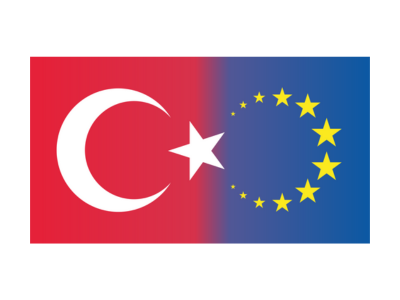

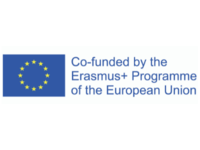
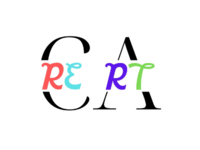

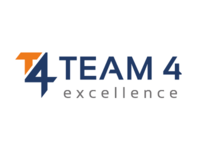


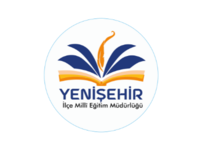
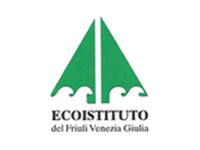

-
For further information, please contact the project coordinators: Yenişehir İlçe Milli Eğitim Müdürlüğü
Address: Yenişehir İlçe Milli Eğitim Müdürlüğü, Güvenevler Mahallesi 1.Cadde No. 118A Yenişehir, Mersin
Tel: +903243254325
Web: https://yenisehir33.meb.gov.tr/
Facebook: https://www.facebook.com/yenisehirmem?mibextid=LQQJ4d
Twitter: https://twitter.com/yenisehirmem_33
Instagram: https://www.instagram.com/yenisehirmem33/
YouTube: https://www.youtube.com/@yenisehir-mersinilcemillie2726
